This week, I am breaking up the Baker's Toolkit to give you a personal insight into the reality of baking professionally. As a baker myself, I encourage anyone with a genuine passion, curiosity to learn, and a willingness to apply themselves to get started; but before you jump in, I think it’s important to be realistic about the demands of the role, and how much it differs from baking casually in your kitchen. I feel a responsibility to share my experience so far and to be as transparent as possible, which, in turn, I hope, will help you to make a well-informed decision.
I’ve spoken previously about how humbled I was when I started working in London; I felt very much out of my depth and completely underestimated the level of skill in the city. Though I survived my first kitchen job and have come a long way since those days, it highlighted to me just how much I still had to learn. I wish I’d been a little more prepared for what was ahead of me physically and mentally.
To ensure I can provide as much information and detail as possible, I have decided to split this topic across two separate posts where I will cover:
The positives and negatives of working professionally as a baker.
How baking in a bakery differs from baking at home, e.g. scaling ingredients, production, workload and time-restraints.
Physical impact on your body and ‘downtime’.
Finding the right environment.
This is by no means a comprehensive list, and I will continue sharing my experiences in the future, but these are the main things I wish I had known before venturing into the professional world.
Positives and Negatives:
So, let’s delve into the negatives first because there are many. Baking is a hard graft; it offers little to no perks. If you don’t have passion, I’m telling you now, you won’t be able to tough it out. And if you are in it for money, then this field isn’t for you. I’m not saying you won’t find any bakeries that pay decently, but they are few and far between. We do it to learn, not to earn; knowledge is the real currency of this industry.
It’s very physical - Most people do not realise this, and it can be a shock to the system, especially if you like to take time off in between finishing a job and starting another. I took a few weeks off to refresh before I began my new bakery role, and although I went to the gym occasionally and walked daily, I still found it tough to go back to physical work; I might have been better off starting straight away whilst I still had the momentum from my previous job! Behind the scenes, you have to balance hot and heavy trays out of the oven, shape large numbers of bread and pastries, carry boxes of wholesale goods into vans, and push aside heavy machinery, tables and fridges to clean underneath. Bakeries produce tonnes of goods every week, which means you need a lot of ingredients to make this happen. Flours come in a variety of weights from a nice 12-16kg to an average of 25kg (I find the 25kg bags of flour relatively manageable now, but for some reason, 25 kilograms of caster sugar or cocoa powder is impossible to move alone - someone please confirm I am not just weak, haha). Milk comes in crates, chocolate chips in large bags, eggs in boxes of 180, and blocks of butter in boxes of around 40. All of this must be lugged around and stored correctly, including lifting and emptying the bags of flour into their designated bins.
A common job for beginners is mixing bread - a LOT of it. After autolysing, the doughs need to be removed by hand, sometimes up to 100kg, depending on the size of the mixer and the amount of each bread you produce. It’s a far cry from making a singular sourdough at home in your kitchen. Large amounts of dough are divided between a few tubs of around 20-25kg, whereas smaller amounts can be placed in one. At my previous bakery, we made five different doughs, but the white was a larger amount, so it had to be divided into two tubs. So we had six tubs in total, which were stacked on top of each other; every 45 minutes, the doughs required a fold to give them strength, so I’d have to unstack the tubs, give each dough a fold, and re-stack them. We had to repeat this step at least three times to complete the bulk fermentation process. Once you’ve added the water to these doughs, they become a lot heavier, and it can be a mission to fold them without putting pressure on your back.
And don’t think the pastry section gets out of it either; on weekends, we would produce 26 croissant doughs weighing 3kg each (if my math is correct, that’s around 78kg of ingredients?!). If this sounds like a lot of labour, it’s because it is.
It’s repetitive and the numbers are high - You may enjoy making cookies at home, but you might become sick of the sight after you’ve mixed and shaped 134 of them. Bakeries generally offer fresh goods, which means bread and pastries are produced every single day for the following day’s bake. The numbers vary from bakery to bakery, but it’s not uncommon to shape around a hundred loaves and a few hundred croissants, which involves a lot of repetitive wrist movements. At home, these processes can be engaging and relieve stress. In a bakery environment, it can grow old quickly when you are making the same thing over and over; you have to really enjoy it. I should also mention that some bakeries will have a monthly pastry menu, which means for four weeks, you will be decorating the same things - and trays of them. But there are always weekend specials and recipe development, which is a fun change.
It’s fast-paced and demanding - Because bakeries don’t make a lot of money, it’s a constant game of scaling up and up to maximise whatever profits they can. Many bakeries will offer wholesale to restaurants, coffee shops and cafes. Some bakeries simply don’t have the space to produce high numbers but will try anyway - putting more pressure onto the bakers, who have to try and produce an increased amount of goods in an already short time scale. I worked previously in a bakery where the owners were not particularly understanding of this and expected us to work quickly and efficiently - but we had minimal table space and were often working on top of each other.
To be a baker is to be constantly on it; at any given moment, you can have multiple doughs fermenting, loaves in the oven, starters that need feeding, pastries that need decorating, deliveries that need putting away, fridges that need re-organising, and you still need to do all your weigh-ups for tomorrow. As a baker, you must be able to work fast and complete all your tasks within a certain time frame. You need to remain focused - which can be difficult when you’re on your fourth 12-hour shift in a row and the brain fog has set in. Most importantly, you have to be able to prioritise. The first thing I learnt in the kitchen, aside from ‘mise en place’, was how to prioritise my tasks. (Disclaimer: I still have to ask for advice every now and then when I’m not sure what order to work in). You must complete everything in the most productive order, e.g. if you have to wait for a mixer to be free then you should use that time to weigh up; while you’re at it, get something else processing too. In bakeries, everything is about pace: move quickly and efficiently, there’s no time to stand around or do one task at a time. Throughout all of this, you must keep your workspace clean and organised. It can be exhausting at first, and you will complete your fair share of late nights where you have to stay behind to finish your jobs.
In my last bakery role, I struggled a lot to keep up with the pace. Every day felt like Groundhog Day. It was hard to tell whether this was due to inexperience or because the workload was too much (it was probably both). Some days, I wouldn’t stop for more than five minutes for a break, and I still couldn’t complete my tasks on time. This is something that does get easier with time and experience, but I believe it’s something worth highlighting; sometimes, it’s not just you, the workload and turnover are just too high. Some bakers can keep up with the demand, but you may prefer somewhere small that focuses on quality over quantity, and that’s okay.
Mistakes have consequences - Mistakes happen, it’s how you learn. I’ve forgotten to put yeast in croissant dough, forgot to press ‘start’ on the timer (several times), mis-weighed the water for my bread, used the wrong flour, and dropped a full piping bag of puree upside down on the floor. Unfortunately, when you are baking professionally, everything has real-life consequences, and while some mistakes might not be a big deal, others can be detrimental to the business. Time and money are wasted, and your coworkers may have to work harder the next day to fix your slip-up. Sometimes, you might sabotage a whole day’s trade because you burnt all the bread or the pastries didn’t prove properly. Other times, you will mix a dough wrong and have to stay behind to mix it again. It’s important to note that some bakeries do not mind training beginners and will be a lot more forgiving when you make mistakes, but other bakeries will be less tolerable. The pressure to remain focused and thorough is ever-present.
Anti-social hours and low pay - Bakers are renowned for pulling long, anti-social hours. You may know someone who gets up in the early hours before the birds are awake or someone who has to sleep all day in preparation for the night shift. A bake shift can start any time from 10 pm at night to 5 am in the morning. A prep (or mix) shift is a little bit nicer, starting any time between 4 am and 10 am. People generally assume that if you start early, you will finish early and get the whole evening to yourself. But that is not always the case; some bakeries will require you to work longer days. In my previous bakery, our shifts started at 5 am and finished at 5 pm (and we would often do overtime). You will usually have to work weekends, and you will have to learn how to go to bed early and how to fall asleep straight after a hectic day (or maybe you won’t, and you will spend the next day feeling like a zombie until your head hits the pillow again). The pay is pretty poor, usually around minimum wage. In London, the West seems to pay marginally better than the East; this is largely down to it being a wealthier area and a popular tourist spot. But even a seemingly good salary can break down to minimum wage an hour or even less! And some businesses will not pay you for overtime.
I want to go back to my earlier statement about passion: without a doubt, you need to have passion to survive in this industry, but sometimes passion doesn’t cut it. When you are overworked and underpaid, the ‘love’ for baking begins to sour. You might begin to question your passion or, worst case, destroy it completely and leave your job feeling burnt out, frustrated and resentful. I’m sure you don’t want that, and I don’t want that for you or myself! But that doesn’t mean your dream job is doomed, it just means you have to know your ‘why’. Your ‘why’ will become your backbone, your driving force, your reason to keep going even when you’ve just pulled another 14-hour shift, and you’re up at 4 am to do it all again.
How to find your ‘why’? - Think about your long-term ambitions, where you see yourself going and what you would like to achieve. Is your job going to allow you to achieve those things? If yes, then identify what areas are going to help you succeed (if it’s a resounding no, then you need to re-assess your situation and find something better suited to your goals). I found it very useful to remind myself of these things, especially in the early days of my last bakery role (when I was finding it particularly hard). My personal ‘why’? I want to learn as much as possible so I can become an all-rounder (something you know I am in constant pursuit of) and gain more knowledge and experience, which I can then share with my readers and teach in baking classes in the future. I was also really keen to hone in on pastry and lamination, and I knew the bakery I had chosen would allow me to train in that section.
Positives:
Now, this is not, in any way, shape or form, a post to deter you from becoming a baker. The point of presenting the negatives first is to rip the bandaid off. Many people have this misconception that baking is going to be a cute career change because they’ve whipped up a few cakes at home. Those people quickly quit, shocked and exhausted. At my last bakery, I was told many people (even from kitchen backgrounds) had come through the doors and struggled; they’d underestimated how demanding the job was or simply found the long hours and workload too much. It can also be hard on the bakers who put in the time and effort to teach them; this is why it’s better for everyone involved to be upfront about what the job is and isn’t. Baking in the industry differs greatly from hobby baking. Having come from a small deli in Devon where I’d been leisurely baking cakes and cookies, I would have hugely benefitted from this reality check a lot sooner!
If you’ve read all this and are still determined to become a professional baker, you won’t regret it! It’s the most challenging yet fulfilling thing I have chosen to do with my life so far.
You get paid to make baked goods - I first had this realisation back in Devon in my first bakery job; I couldn’t believe I was getting paid to make brownies all day whilst someone else was sitting in an office or waiting tables. When I said, “It’s no longer your romantic hobby”, this is somewhat untrue. Baking, even professional baking, comes with an element of romanticism. In between all the lifting, mixing and craziness, there are small pockets of time where you will smile to yourself as you glaze buns, roll up pain au chocolates (nibbling on the sticks of chocolate), and dust danishes with a gentle flurry of icing sugar. When you’re stacking the freshly baked loaves onto the bread shelf, and the sun starts to bask the bakery in a golden glow, this perspective will help you manage the hours and the stress of it all.
You get to tap into your creative side - Baking is an art; it requires passion, creativity and strong attention to detail. As a baker, your job is to turn raw ingredients into something that doesn’t just taste delicious but also feeds the eye. Baking, for me, taps into my creativity in the same way that illustration does. It encourages you to be innovative, to problem-solve, and to be playful. There is nothing more rewarding than bringing an idea to life and seeing the fruits of your labour.
You stay active - I’ve spoken at some length about the physical nature of the job, but this is not necessarily a bad thing. As we all know, sitting for long periods can increase your risk of high blood pressure, heart disease and other medical conditions. As a baker, you will spend most of the day on your feet. Whether you are putting away deliveries, folding heavy dough, or taking things out of the oven - you are constantly moving. You might think twice about keeping that gym membership!
It treats your senses - The smells: that familiar sweetness of cinnamon sugar in the air, the sharp fruitiness of blackberries bubbling away in a pot, the warmth of the sourdough that has just come out of the oven, and that yeasty smell of croissants when you open the prover door. The sights: that loaf of bread with its perfectly scored ear, the bubbling baguette dough spilling onto the table, and the tray of golden buns that somehow look even more appealing once glazed. And then, of course, there’s the taste. Nothing compares to a warm slab of sourdough with salted butter or the crisp texture of a freshly baked pain au chocolate straight from the oven!
You will learn, a lot - The biggest positive about baking professionally? Learning. Learning was my sole reason for venturing into the industry; while I taught myself a lot in the early days, the experiences and lessons I have gained from working in a professional environment are invaluable. You will be exposed to a variety of ingredients and shown many different techniques, and you will work among some incredibly talented people. When I discovered my passion for baking, I would have loved to go to pastry school, and though this would have provided me with a good foundation, there are things that school simply can’t teach. You will learn how to adapt and problem-solve when someone has called in sick, your flour delivery hasn’t turned up, or you’ve run out of custard to fill the pastries and the bakery opens in five minutes. Getting uncomfortable and learning how to cope under pressure will only make you a stronger, more resilient baker.
People become bakers because they want to be good at it, but to make it professionally, you have to be dedicated to your craft. You have to open yourself up to failure; every mistake and failed experiment is a lesson. You have to act like a sponge; no one likes a know-it-all, and you won’t gain respect from others if you aren’t willing to listen. Ask questions; you will meet many experienced bakers and cooks in the industry, and you can learn a lot from them if you show you are interested.
There are other positives too: you get to eat delicious staff food and drink real coffee, all for free. You get to take home fresh loaves until your freezers are full, and your housemates protest, “No more!”. You get to work with like-minded people (who are just as enthusiastic about beige goods as you), and sometimes you will gain a lifelong friend along the way.
One day, you might progress onto something bigger, such as becoming a head baker and leading a team. Or you might decide to use your knowledge to teach others and open a school. Perhaps you aspire to start a micro bakery in your kitchen or build a full-scale brick-and-mortar. You could even become a recipe developer and write your own cookbook. Or maybe, you’ll read my post and decide you’re happy just making cinnamon buns at home on a Sunday!




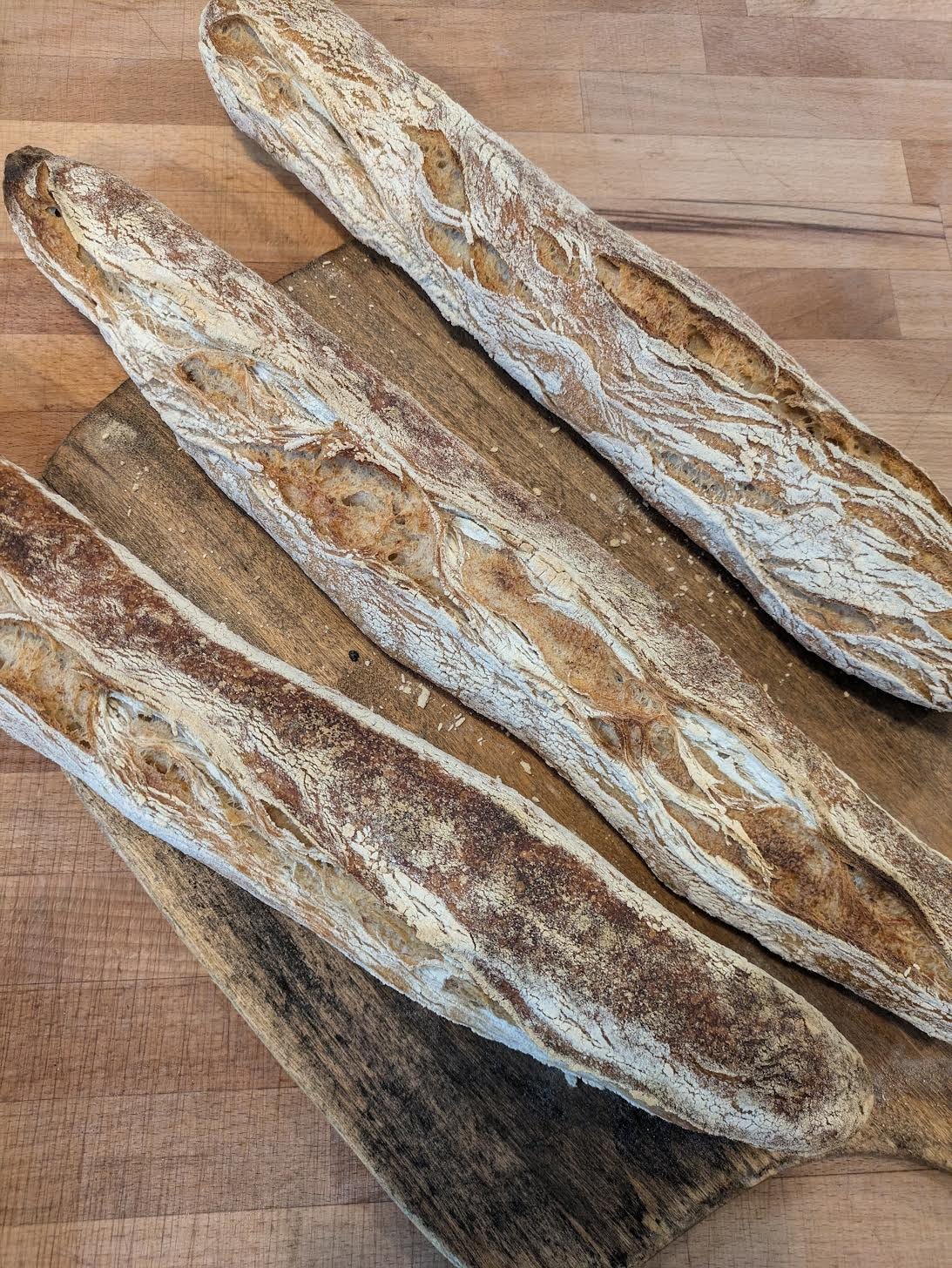
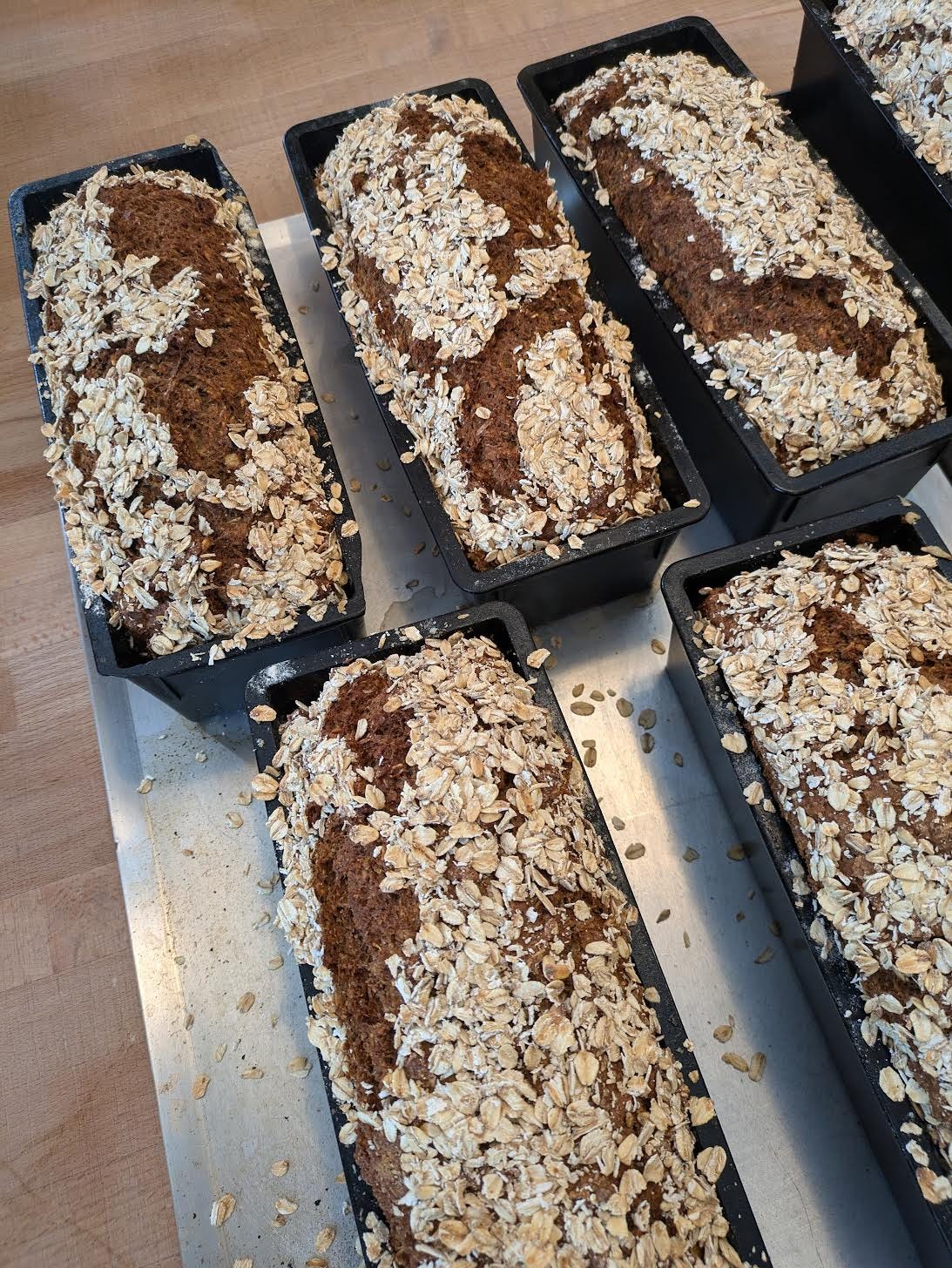
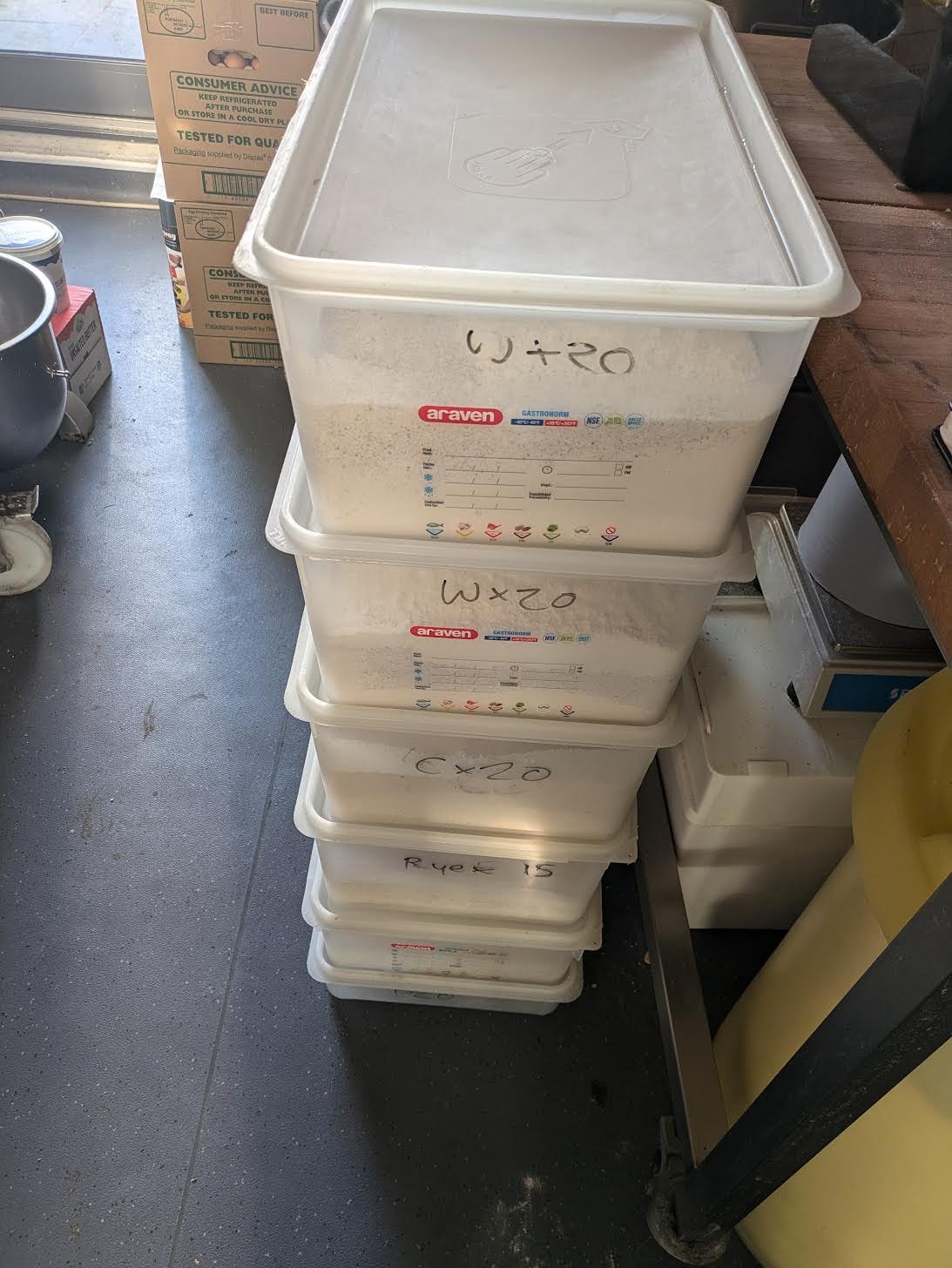

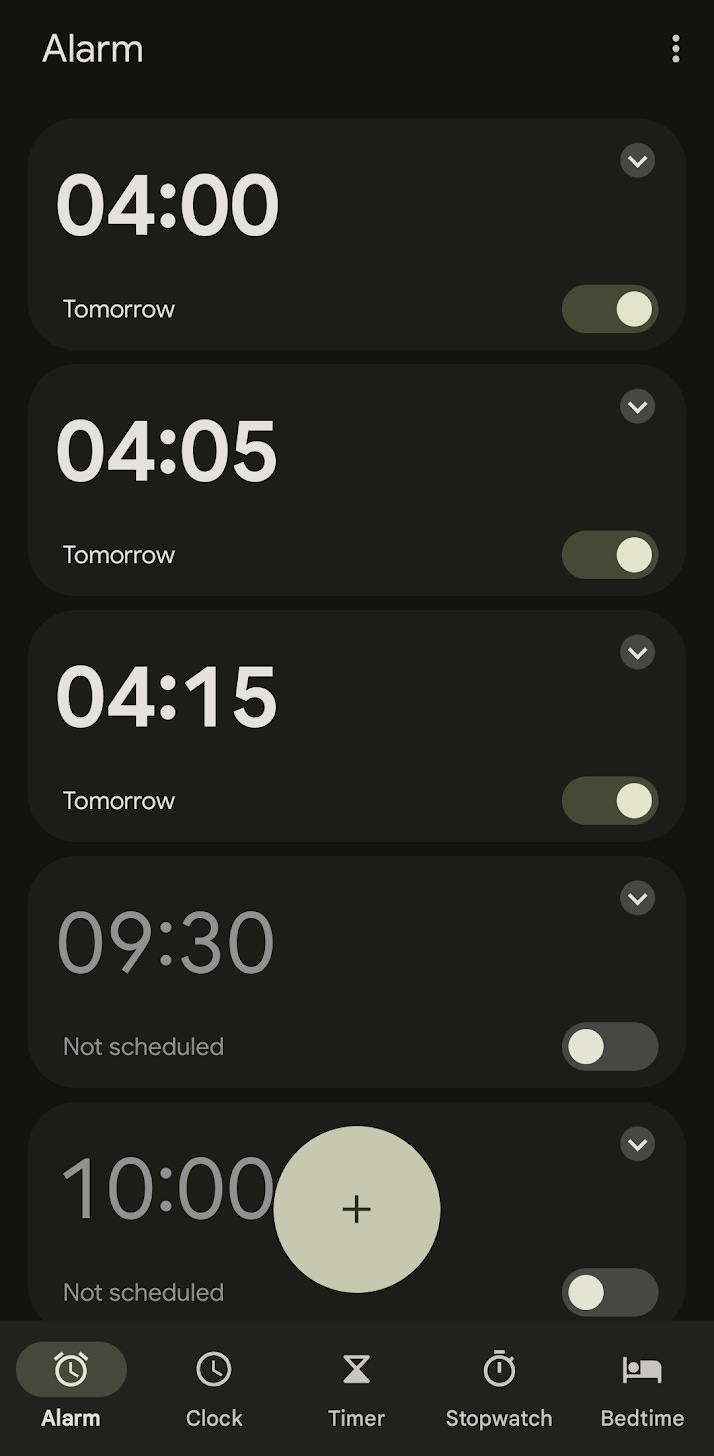
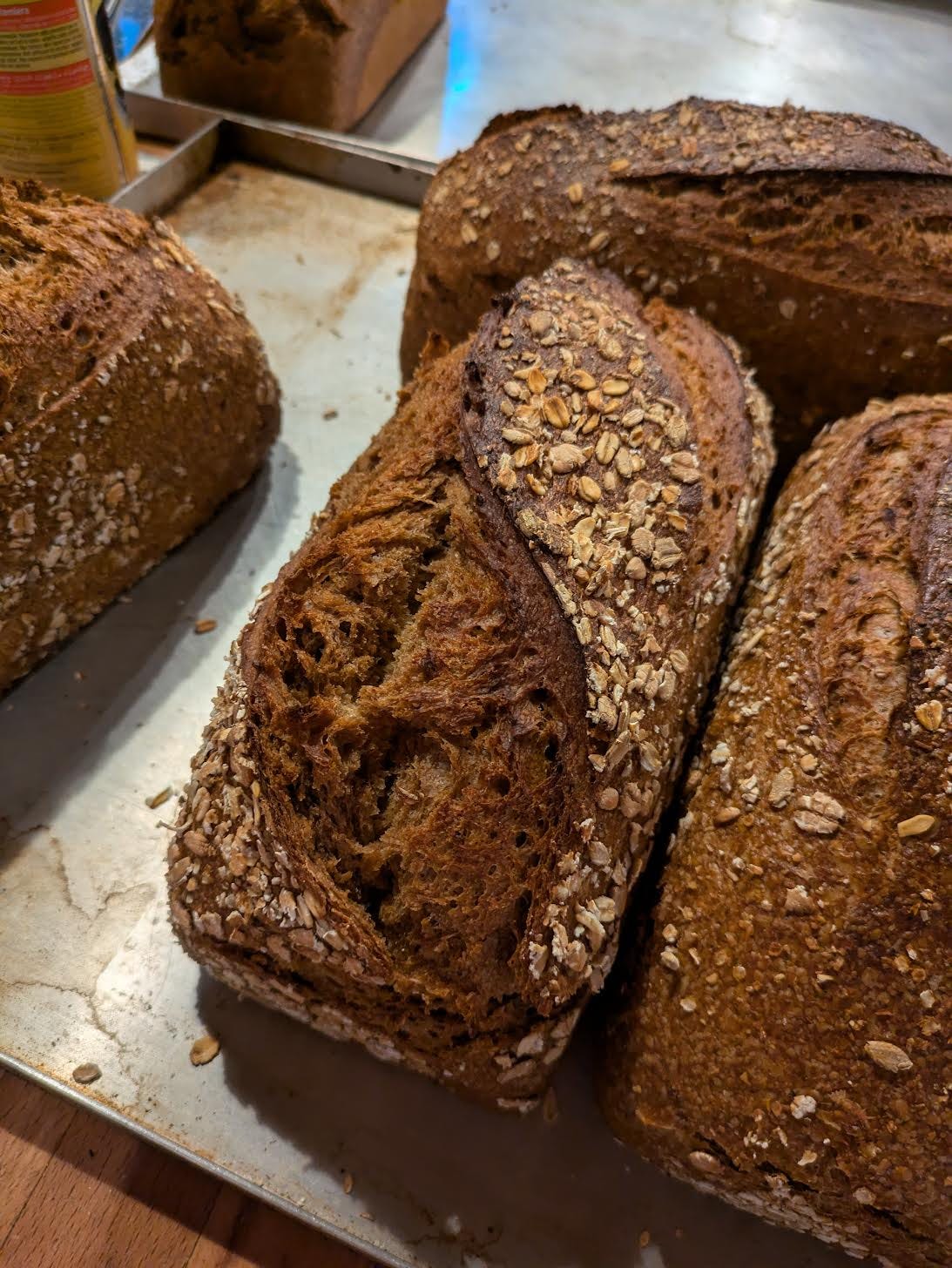

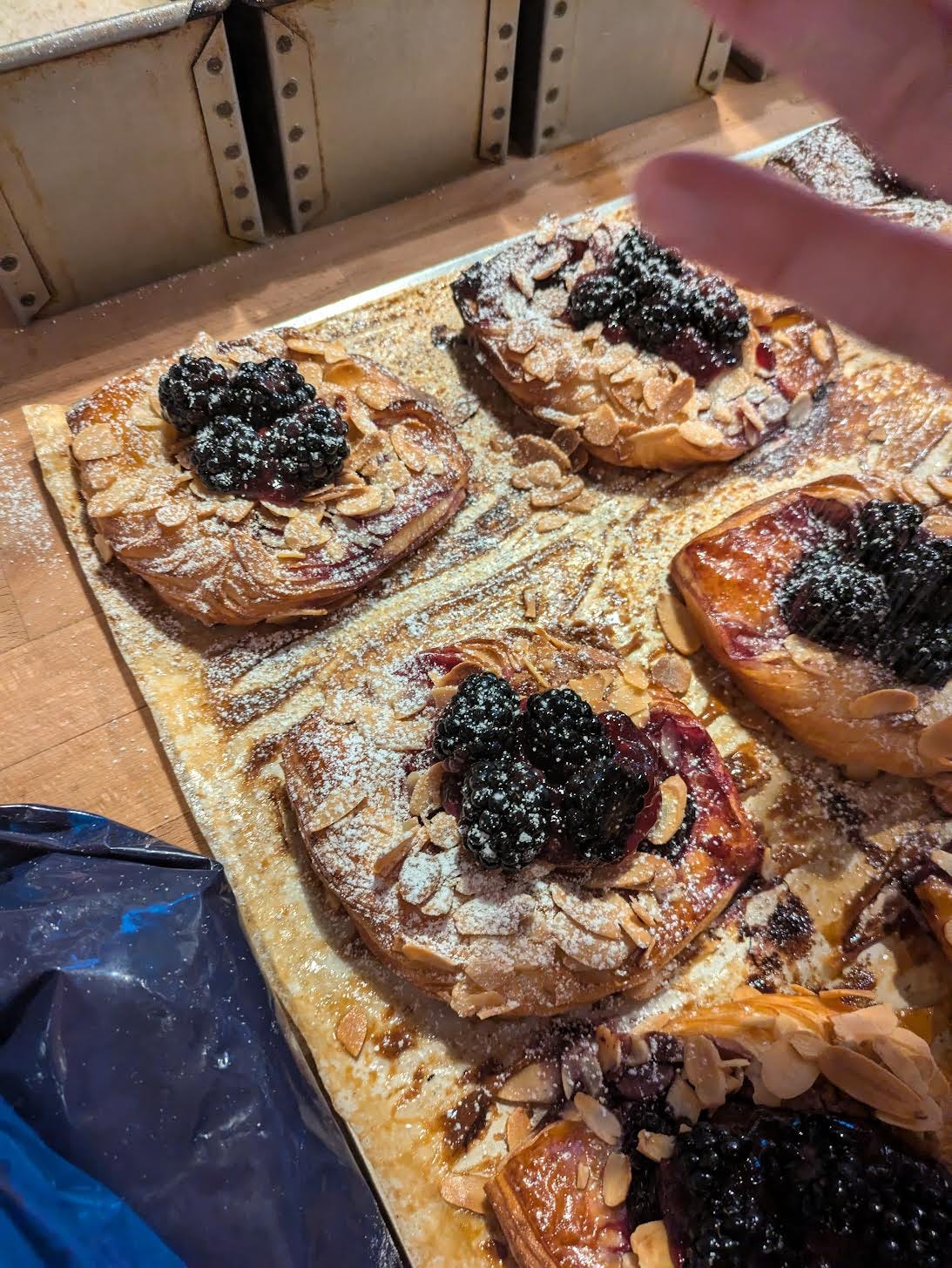
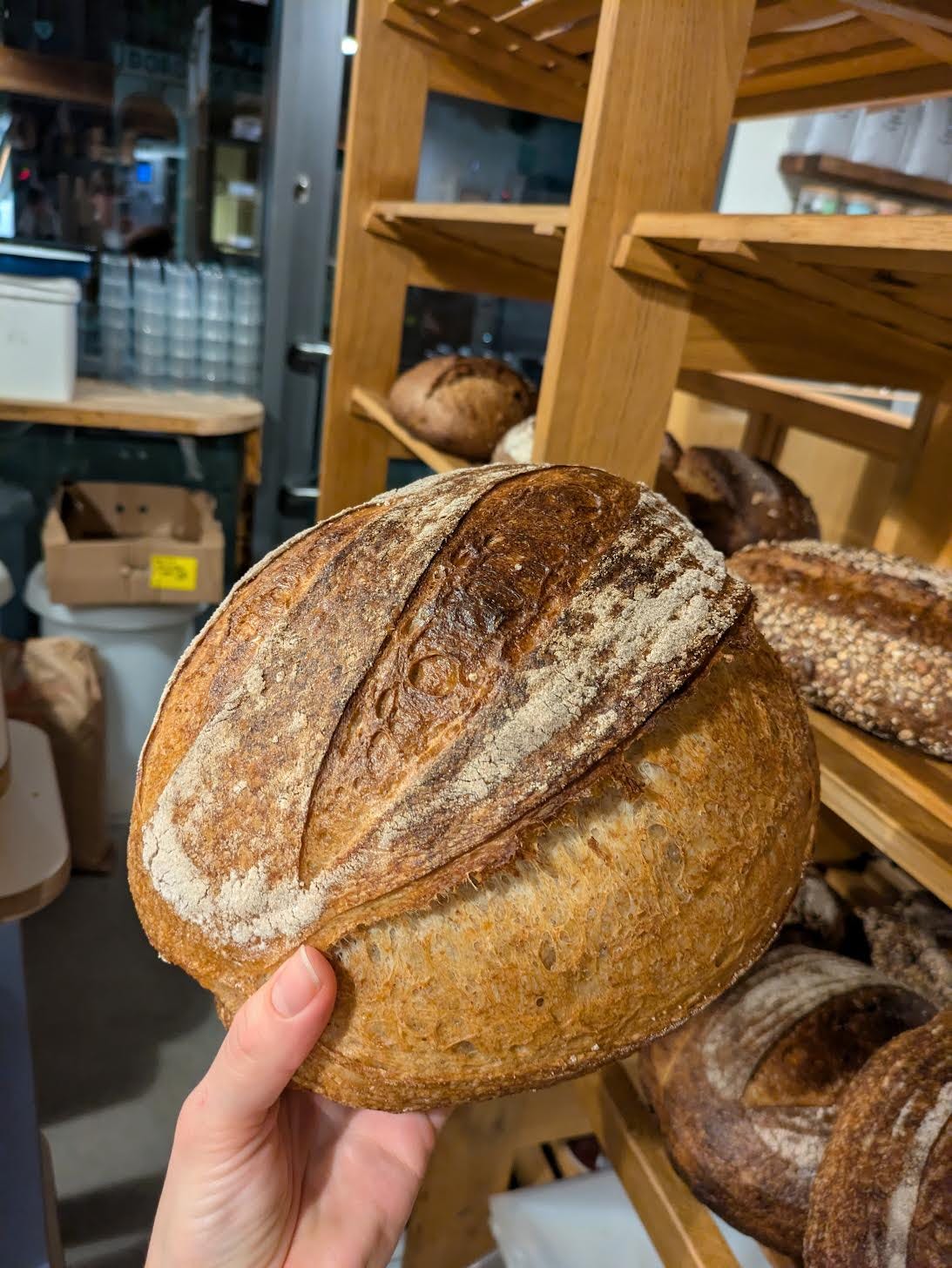




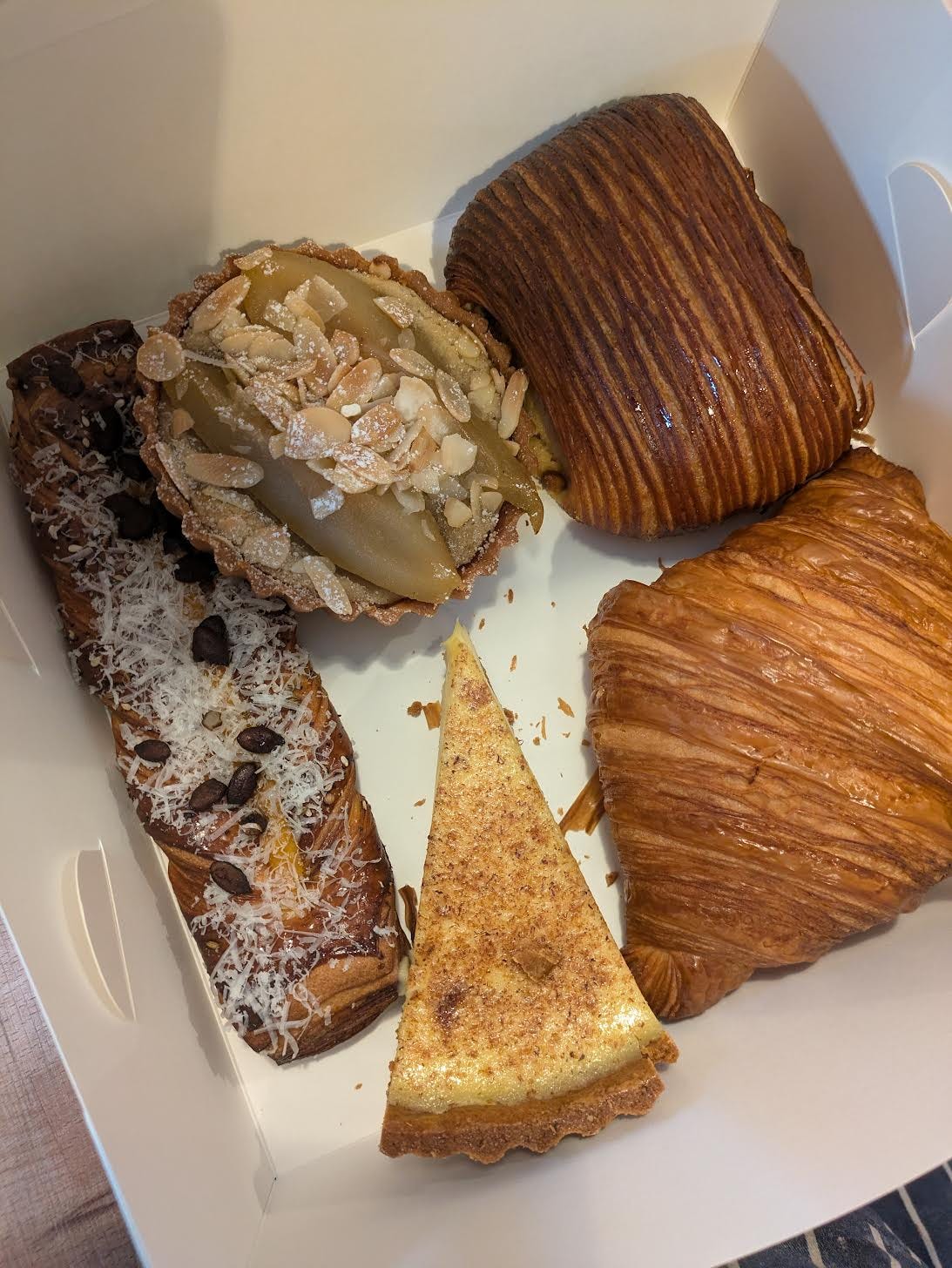
Such a great post!! Thank you for sharing it and I really appreciated the “ripping off the band aid” realities you shared ❤️
Thank you for this little series Crystal. Some of the things you mention here are things I have personally have been battling with. Particularly as I have two young children to look after as well. I look forward to your next post!